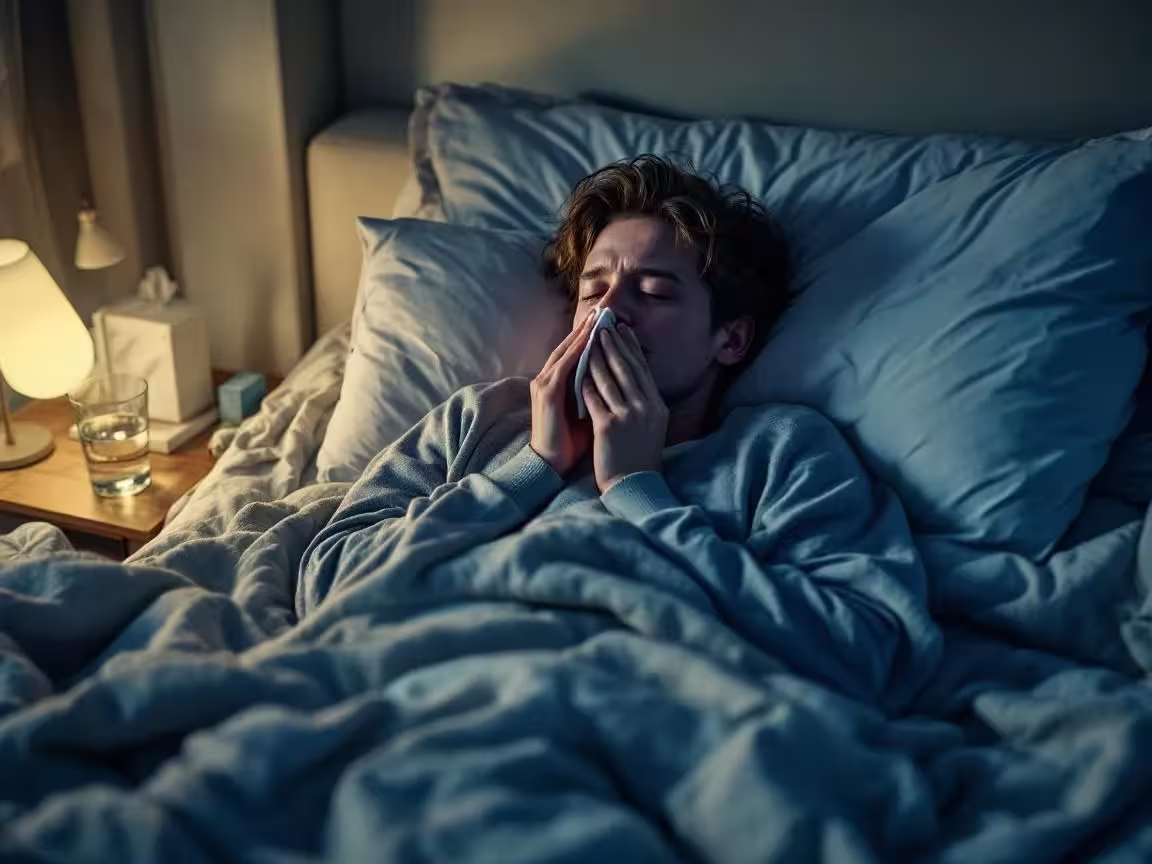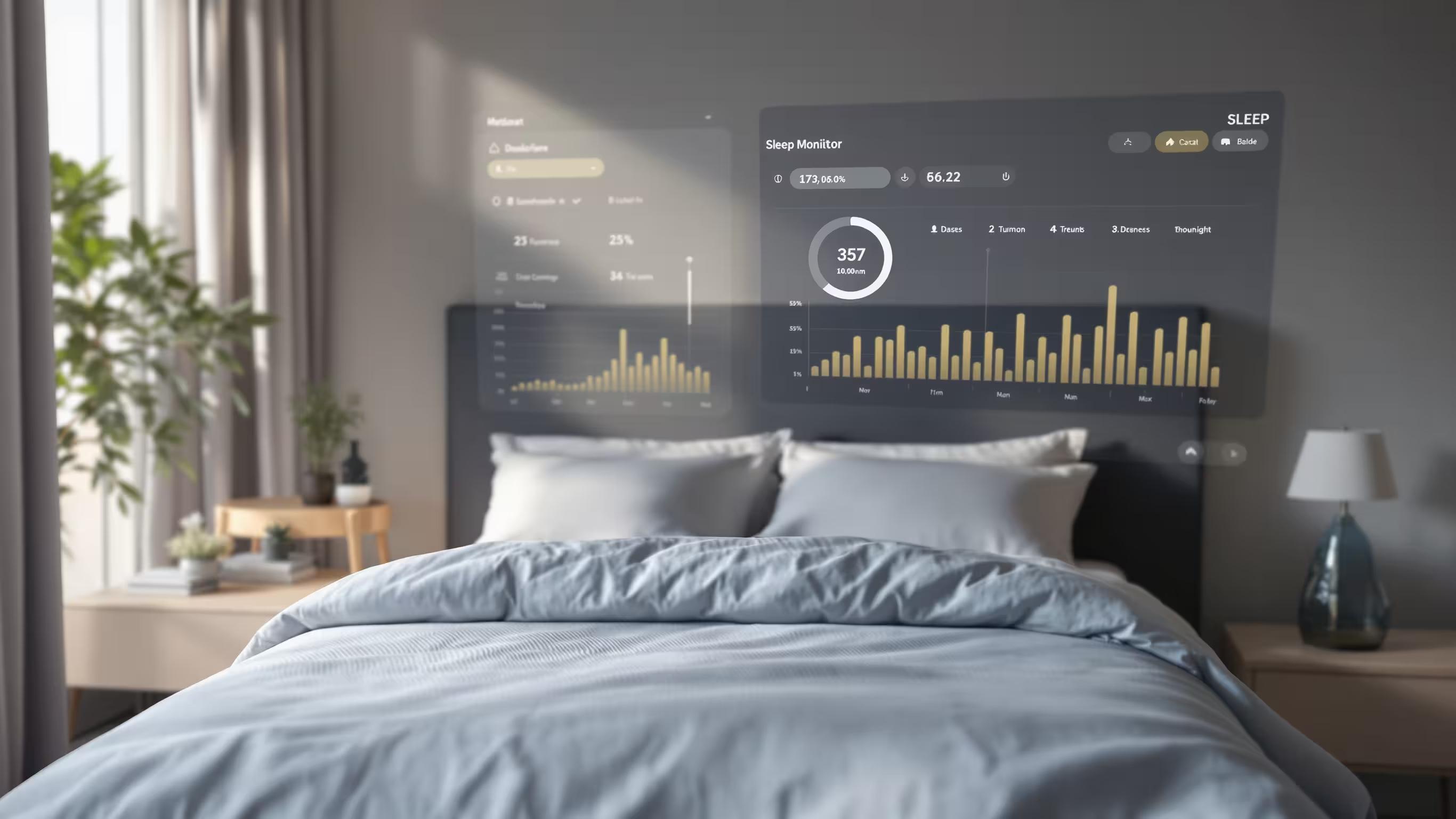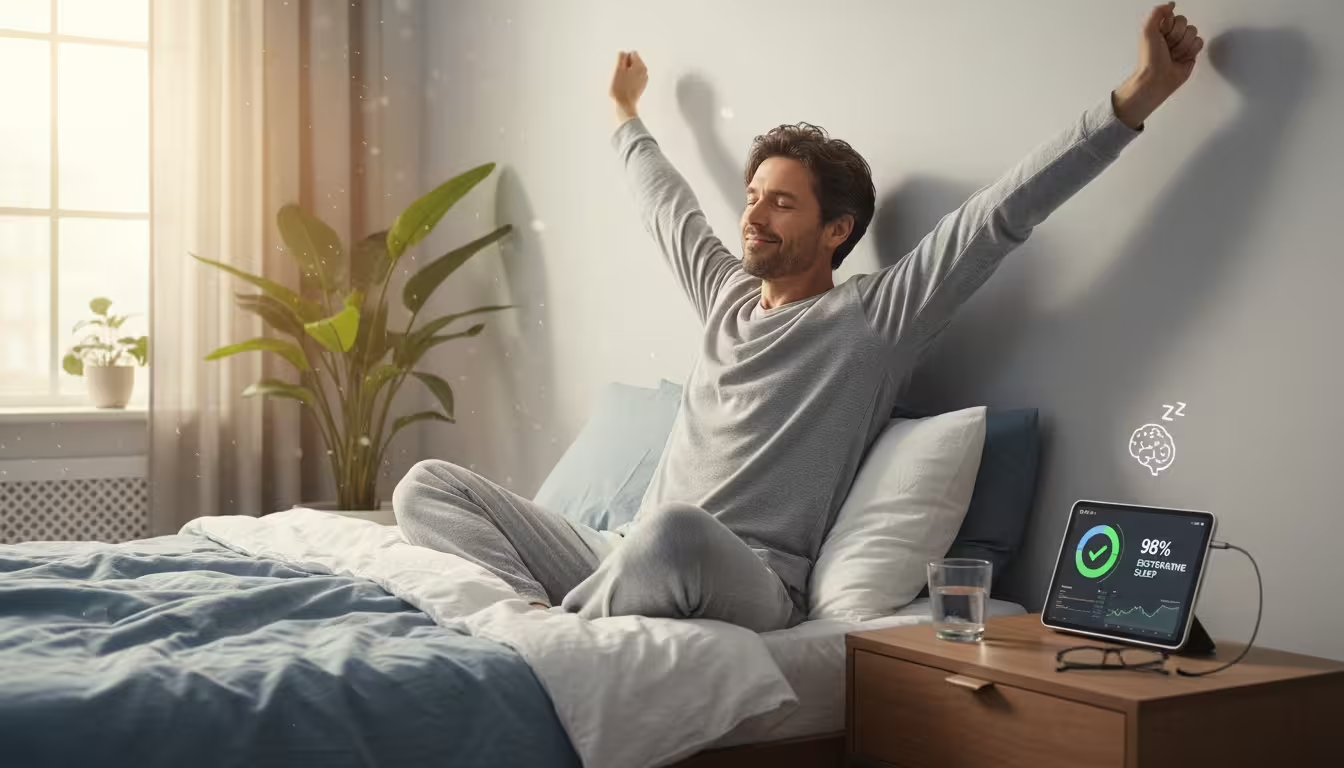Sleep & Immunity: How Better Rest Strengthens Your Body’s Defenses

Introduction: Sleep Is the Immune System’s Secret Weapon
In a world where caffeine rules our mornings and screen time dominates our evenings, sleep often becomes the first casualty. Yet each restless night isn’t just fatigue—it’s a hit to your immune system.
While we sleep, our body orchestrates one of its most complex repair and defense routines. Cells regenerate, inflammation subsides, and immune messengers rally for the next day’s challenges.
But what happens when sleep becomes optional? Studies from the past year have made one thing clear: poor sleep weakens immune resilience, leaving us more prone to infections, slower to recover, and less focused overall.
The Science: How Sleep and Immunity Are Interconnected
Sleep and immunity work in a synchronized cycle. During deep, restorative sleep, cytokines—molecules that help fight infection and inflammation—are produced in greater amounts, while immune cells such as T-cells and natural killer (NK) cells become more active and efficient.
When we lose sleep, these mechanisms falter.
Recent findings show:
- Just 24 hours of sleep deprivation can alter immune cell distribution and elevate pro-inflammatory cytokines in healthy adults, indicating even short-term sleep loss disrupts immune balance. (The Journal of Immunology, 2025)
- In a study of over 400,000 adults, those with consistently healthy sleep habits had up to a 30% lower risk of developing life-threatening sepsis, a condition caused by the body’s extreme immune response to infection. (Critical Care, 2025)
- In a controlled study exposing volunteers to the common cold virus, people who slept fewer than six hours per night were about four times more likely to catch a cold than those who slept more than seven hours. (Sleep, 2015)
In essence, consistent, high-quality sleep isn’t a luxury—it’s a biological necessity for defense, recovery, and long-term immune resilience.

From Data to Defense: The Role of Sleep Monitoring
Understanding your sleep patterns is the first step to strengthening your immunity. That’s where bitsensing’s radar-based, contact-free sleep sensor changes the game.
Placed near your bed, the device continuously monitors:
- Sleep stages and movement
- Breathing rhythm and heart rate
- Overall sleep quality and stability
Unlike wearables, it requires no physical contact or battery charging, making it ideal for everyone—from older adults to infants.
What Makes bitsensing’s Sleep Sensor Different
Traditional sleep apps rely on accelerometers to guess your sleep cycle from movement.
bitsensing takes a more precise, data-driven approach. Using radar and AI algorithms, it detects minute bio-signals in real time—turning raw data into meaningful insights about how deeply and efficiently you sleep.
That accuracy matters. Subtle fluctuations in breathing or heart rate can reveal early signs of sleep disruption, stress, or health decline—long before symptoms appear.

Why Monitoring Sleep Improves Your Health
Better sleep isn’t just about feeling rested—it’s about giving your immune system the tools to fight back.
By tracking and improving your sleep with bitsensing, you can:
- Detect irregular sleep patterns that affect recovery
- Identify environmental triggers like noise or temperature
- Make data-based lifestyle adjustments
- Build a positive feedback loop: better sleep → stronger immunity → better focus and well-being
Long-term, consistent sleep tracking supports viral resistance, reduces fatigue, and enhances productivity—turning daily rest into measurable health outcomes.
Expanding the Future: From Home Wellness to Digital Healthcare
The potential of contact-free sleep data extends well beyond personal health.
- Corporate wellness: anonymized recovery data can help companies support employee well-being and productivity.
- Insurance & insurtech: sleep data can inform personalized health-risk modeling and tailor coverage plans.
- Elder care & hospitals: non-wearable monitoring protects vulnerable populations and supports infection-prevention programs.
Sleep isn’t just a personal metric—it’s becoming a cornerstone of data-driven preventive health.

Rest Is Resilience
Every hour of quality sleep strengthens your immunity, clears inflammation, and restores balance. With technology like bitsensing’s radar sleep-monitoring sensor, we can finally measure what was once invisible—and use that insight to live stronger, healthier, and more focused lives.
bitsensing | Radar Reimagined
FAQ
Q1. What are the earliest signs that sleep quality is affecting immunity?
The first indicators are changes in breathing patterns and heart rate variability (HRV). These biomarkers show early stress on the immune system before noticeable symptoms appear, making them strong early signals of weakened immune function.
Q2. How can a contactless sleep sensor help support immune health?
A contactless radar sleep sensor continuously measures sleep stages, micro-movements, breathing, and HRV—key factors linked to immune recovery. Because it requires no wearing or charging, it enables long-term, accurate monitoring that helps detect early disruptions in recovery that may impact immunity.
Q3. What matters more for immunity: sleep duration or sleep quality?
Sleep quality is more closely tied to immune function than duration alone. Deep sleep, sleep stability, and consistent breathing patterns play a direct role in immune restoration. Two people may sleep the same number of hours but show different immune recovery levels depending on sleep quality.

